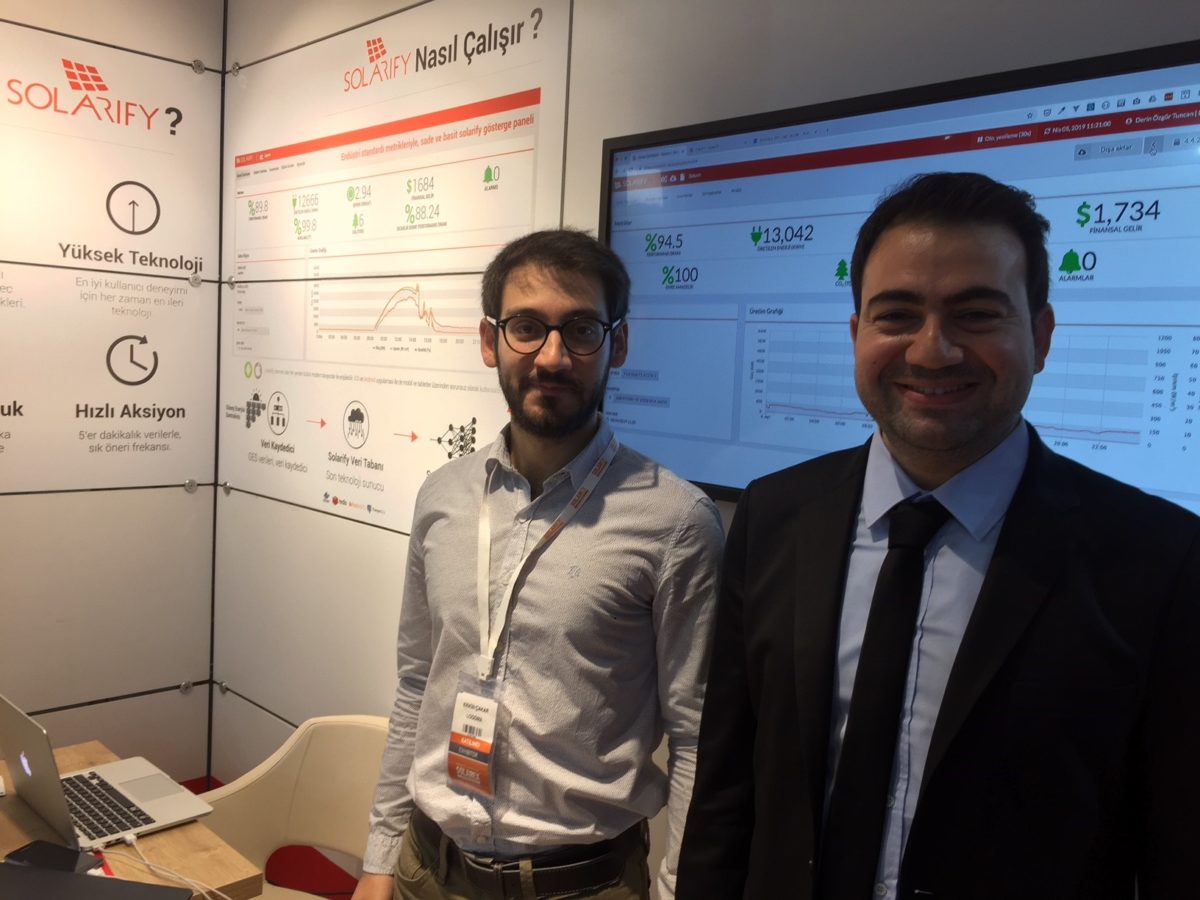From childhood friends to solar entrepreneurs: Ozan Tuncan and Erkin Cakar are drawing on their technical and business experience in Telecom and E-commerce and applying it to PV. And they believe by utilizing Artificial Intelligence (AI) in their monitoring platform they can help plant owners to more efficiently provide O&M services.
As of February 2019, official figures put Turkey’s installed PV capacity at 4.2 GW. This provides plenty of opportunity for monitoring providers – and Turkish developers have deployed a patchwork of international and home-grown Scada and monitoring providers.
The vast majority of Turkey’s installed solar capacity has been developed in the unlicensed market segment. This requires larger projects to be installed in individual 1 MW increments – with each project owned by a separate legal entity. As a result, distilling monitoring from the individual 1 MW projects and across various sites to a single platform provides additional value to solar asset managers, operators and owners.
“We service around 60 MW of capacity, but we do not apply our AI systems to all of them,” says Ozan Tuncan – Solarify cofounder. “We have an additional model called ‘smart reporting’ – for some clients we are only selling smart reporting.”
The Solarify platform can bring together many projects onto the one monitoring platform, including the numerous 1 MW sub-projects that make up a larger unlicensed system. It then analyses the data from the inverters and Scada systems, comparatively against modelled park output to more accurately alert asset owners if and when a problem arises.
“A standard monitoring system takes the input and gives you output, but we analyse,” says Erkin Cakar, Solarify cofounder. “We check for previous problems and provide recommendations.”
“Applying artificial intelligence helps us, it decreases the number of false alarms,” Cakar continues, “our accuracy in findings is up to 98%.”
Being based at a startup incubator associated with Ege University provides opportunities to collaborate with other AI developers, says Cakar. Another startup at the incubator, for example, is developing chat-bots enabled by AI – and the two teams collaborate on the technology.
Solarify was founded with the cofounders own capital and a government grant. With revenues from the 60 MW fleet under service coming in, it is now looking for international partners to expand beyond Turkey.
As to how the cofounders came together, it goes way back. “We’re old friends, for more than 15 years,” says Tuncan. “I called Erkin and I said, ‘I have an idea, let’s do it. Let’s invest now because there is a gap here.”
While there is a gap and the potential for AI is only emerging, a number of companies are moving into the space. French monitoring provider QoS, Australia’s Raycatch and SolarEye from Greece have all announced programs to deploy AI in their service offering, among others.
This content is protected by copyright and may not be reused. If you want to cooperate with us and would like to reuse some of our content, please contact: editors@pv-magazine.com.




Can I have more information about this monitoring solution?